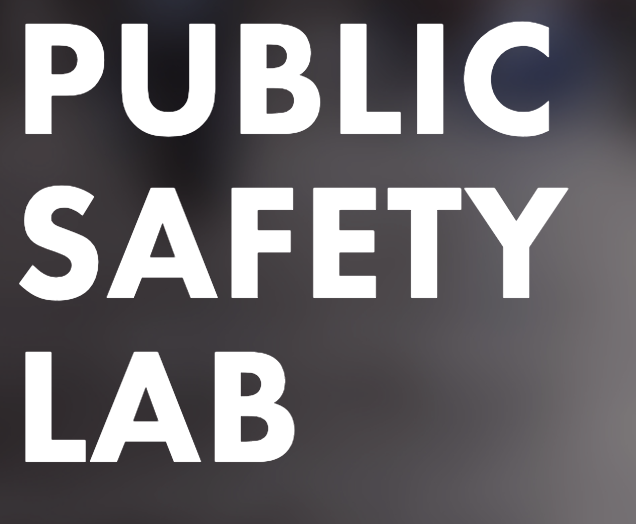2018 Workshop on Data-Driven Criminal Justice Reform
Public Safety Lab, New York University
Friday October 19th 2018 9 AM-4:30 PM
Saturday October 20th 2018 9 AM-1 PM
Lester Pollack Colloquium Room
Furman Hall, New York University School of Law
Data science and social science may offer opportunities to support communities’ efforts to pursue criminal justice reform. For example, many relatively minor offenses are easy to detect and interdict. Many more serious offenses are much harder to detect and interdict. As a consequence we may overpunish relatively minor offenses, and underpunish more serious offenses. Data science and social science strategies may allow us to achieve more socially productive allocations of criminal justice resources.
This workshop will convene university researchers along with representatives from public agencies and nonprofit organizations to engage in a broad-ranging conversation on data-driven criminal justice reform.
Space is limited and registration is required; please rsvp here if you wish to attend. Rsvps will close when capacity is reached.
Friday, October 19
8:30-9:00: Light breakfast available
9:00-9:15: Opening remarks
9:15-10:45: Do we overpolice minor offenses?
A significant share of law enforcement effort is directed at policing relatively minor offenses, such as infractions, violations, and misdemeanors. Law enforcement personnel are often asked to respond to situations that might better be handled by medical or social service professionals. How are these resource allocation decisions made? Are they effective? Are they equitable? What consequences do they have? Are there better ways to make these decisions? What kinds of data would we need to answer these questions?
Wesley Bell, Democratic Candidate for St. Louis County Prosecutor
Jenn Rolnick Borchetta, Deputy Director, Impact Litigation, The Bronx Defenders
Captain Clay Farmer, North County Police Cooperative, St. Louis County
Ravi Shroff, Assistant Professor of Applied Statistics and Urban Informatics, New York University
11:00-12:30: Do we underpolice more serious offenses?
Many more serious offenses, such as gun violence, gun trafficking, drug trafficking, and sex trafficking, are difficult to detect and/or seemingly intractable. Recent developments in data science may offer tools to help law enforcement agencies address these more serious offenses. How do these predictive policing tools work? Are they effective? Are they equitable? What consequences do they have? What kinds of data would we need to answer these questions?
Anna Harvey, Professor of Politics and Director, Public Safety Lab, New York University
Justin McCrary, Paul J. Evanson Professor of Law, Columbia Law School
Daniel Neill, Associate Professor of Computer Science and Public Service, New York University
Chief Lori Pollock, Crime Control Strategies, New York Police Department
12:30-1:30: Lunch
1:30-3:00: Is pretrial decision making optimal?
A number of important decisions are made during the period between arrest and the disposition of a defendant’s case. For example, prosecutors make decisions over whether to pursue prosecution, the nature and count of charges brought, bail and detention recommendations, and plea offers. Judges make bail decisions, rule on pretrial motions, and approve or disapprove of plea bargains. How are these decisions made? What consequences do they have? What kinds of data-driven strategies might assist prosecutorial decision making? Do bail algorithms offer the promise of more effective bail decisions? What kinds of data would we need to answer these questions?
Sharad Goel, Assistant Professor of Management Science and Engineering, Executive Director, Stanford Computational Policy Lab, Stanford University
Scott Levy, Special Counsel to the Criminal Defense Practice, The Bronx Defenders
Jens Ludwig, McCormick Foundation Professor of Social Service Administration, Law, and Public Policy; Director, University of Chicago Crime Lab
Maria McKee, Principal Analyst, Office of San Francisco District Attorney
3:15-4:30: Access to counsel
Jurisdictions vary widely in their practices with respect to providing counsel to the indigent. What factors affect access to counsel? How does access to counsel affect outcomes? How does the quality of counsel affect outcomes? Are there data-driven strategies to promote more effective access to counsel? What kinds of data would we need in order to answer these questions?
Amanda Agan, Assistant Professor of Economics and Affiliated Professor of Criminal Justice, Rutgers University
Andrew Davies, Director of Research, New York State Office of Indigent Legal Services
Miguel de Figueiredo, Associate Professor of Law and Terry J. Tondro Research Scholar, University of Connecticut
Saturday, October 20
8:30-9:00: Light breakfast available
9:00-10:15 Incarceration and reentry
Incarceration is expensive, both in terms of its direct financial costs and in terms of the indirect costs it imposes on defendants post-release. Is incarceration an effective strategy to achieve deterrence? Is it equitable? What consequences does it have? Are there more cost-effective alternatives that can achieve both greater deterrence and greater reentry success? What kinds of data would we need to answer these questions?
Monica Deza, Assistant Professor of Economics, Hunter College
Elizabeth Glazer, Director, Mayor’s Office of Criminal Justice, New York City
Jennifer Skeem, Mack Distinguished Professor of Social Welfare and Public Policy, University of California, Berkeley
10:30-11:45 Transparency and accountability
Recent media attention directed at police shootings, instances of officer misconduct, and civilian complaints has raised questions about the availability and accuracy of law enforcement data. What kinds of data should law enforcement agencies report to the communities they police? What consequences, both positive and negative, might follow from reporting these data? How would we know?
Cynthia Conti-Cook, Staff Attorney, Criminal Special Litigation Unit, Legal Aid Society, New York City
Jonathan Mummolo, Assistant Professor of Politics and Public Affairs, Princeton University
Anita Ravishankar, Fellow, The Lab @ DC
12:00-1:00: Working Lunch: Developing strategies for data-driven criminal justice reform
In this final session we will review the most promising strategies identified to promote data-driven criminal justice reform, discuss potential partnerships, and develop a roadmap for future research.
Chris Dawes, Associate Professor of Politics, New York University
Sharad Goel, Assistant Professor of Management Science and Engineering, Executive Director, Stanford Computational Policy Lab, Stanford University
Jonathan Mummolo, Assistant Professor of Politics and Public Affairs, Princeton University
Daniel Neill, Associate Professor of Computer Science and Public Service, New York University

